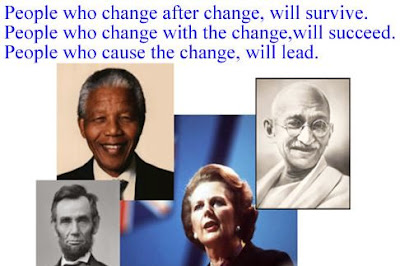The Quality profession has two sources of influence and power from which it must deliver its intended function:
- Inspirational power derived from the passionate convictions of sincere appeals to a shared positive mission and vision. (Transformational)
- Punitive power gained by enforcing specifications, requirements, regulations, and compliance to official policies. (Control)
In my view, leadership capability is a necessity. Our profession has evolved from being control-oriented and reactive (consider that the original name of our organization was American Society for Quality Control) to being transformation-driven. The ASQC-era definitions of quality are summarized below:
- Conformance to requirements
- Fitness for use and purpose
These reflect restraining forces, where the Quality function would provide data collection and process control services to refine existing work, and prevent undesirable outcomes. In this context, Quality would exert power primarily as an enforcer of customer requirements and industry regulations.
In the current ASQ-era, a grander vision is sought, which extends to driving forces of organizational excellence, business transformation, social responsibility, and personal achievement. Leadership is required for the successful mobilization and transition from the status quo to a higher level of greater enlightenment, versatility, and robust operations.
Unlike the control mentality, where influence is built upon defensive reactions to potential maladies; the transformation mentality requires its influence to be drawn from leadership characteristics and principles:
- An optimistic and competitive vision of the future
- A call to urgent action and consistent accomplishment
- Alignment of common priorities with the promise of mutual gains
- Pursuit of innovative breakthroughs and evolutionary advancement
- Continual motivation to overcome obstacles and challenges
Without a determined and deliberate approach, and the proper application of effective and contextually appropriate leadership methods and techniques, the necessary transformations and aspirations of excellence will not occur. Quality without leadership is reduced to a bureaucratic function, tolerated only by its minimal necessity. In contrast, when visionary leadership is applied, Quality becomes the driver of all organizational activities, and the foundation of personal and professional success and excellence.




Hello Daniel,
ReplyDeleteI am the Outreach / Newsletter Chair for the Rhode Island section of ASQ. I very much enjoyed your Nov. 13, 2014 post entitled "Quality Power". Would you consider allowing me to share the article with our members in our next newsletter? I believe the content and the quality of writing is exactly what I attempt to bring to my readers. Of course your name will appear as the author and I could mention your Blog. I look forward to hearing from you. Happy New Year.
Sincerely,
Maurice E. Menard